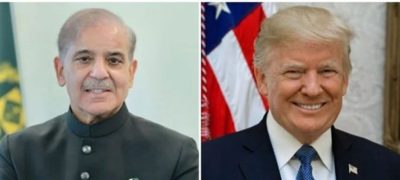Earth Hour Day symbolizes global solidarity in the fight against climate change, advocating for environmental action, policy reforms, and sustainable habits. It stands as a beacon of unity for conservation, promoting lasting solutions and positive ecological impacts through collective efforts.
Scheduled for March 23, 2024, Earth Hour Day calls for a worldwide collaboration, where individuals, communities, and businesses will turn off non-essential lights for one hour, from 8:30 pm to 9:30 pm local time. Originating in Sydney, Australia, in 2007, Earth Hour has evolved into a global phenomenon, initially responding to climate change concerns by conserving energy through symbolically switching off lights.
Also Read: Can a Giant ‘Space Umbrella’ Help Cool Down Earth’s Temperature?
Today, Earth Hour serves as a catalyst for environmental advocacy and policy change, uniting people across continents, cultures, and time zones. The theme for Earth Hour Day 2024, “Uniting for Our One Shared Home,” highlights the interconnectedness of Earth’s inhabitants and underscores our collective responsibility to protect our natural environment. It emphasizes the need for harmony between humanity and nature, urging sustainable practices and fostering a global community dedicated to prioritizing the planet’s health in all decisions and actions.
Earth Hour Day holds profound significance as a global environmental initiative, demonstrating the collective power of individuals and organizations worldwide to address climate change and promote sustainability. By dimming non-essential lights for an hour, participants express their commitment to the planet, sparking a global conversation on the need for action.
During Earth Hour, participants engage in various activities that contribute positively to the planet, such as hosting gatherings, embracing personal sustainability actions, reconnecting with nature, conserving energy, and participating in community projects like clean-up drives and tree planting. The impact of Earth Hour Day extends beyond the symbolic gesture, driving awareness, inspiring change, and influencing policy reforms.
Earth Hour has led to tangible environmental benefits, including policy changes and increased public engagement. It also fosters educational initiatives in schools and highlights corporate commitments to environmental sustainability. Overall, Earth Hour Day serves as a powerful reminder of the collective responsibility to protect and preserve our planet for future generations.reactions from US-based experts, reflecting diverse perspectives on US-Pakistan relations and related issues.
Supporters of the Pakistan Tehreek-e-Insaf (PTI) expressed dissatisfaction with Lu’s rejection of certain charges, viewing it as a tacit acknowledgment of a regime change threat. However, others, like Pakistani-American scholar Shuja Nawaz, saw Lu’s dismissal of the PTI conspiracy narrative as a reflection of poor decision-making within the Pakistani government.
Nawaz emphasized the significance of the hearing in highlighting Pakistan’s reliance on US support and trade dependence, particularly in the context of the recent IMF staff agreement for potential financial relief. He also noted the importance of addressing allegations of election irregularities to avoid future US sanctions.
Uzair Younus, another scholar, observed a departure from past hearings, with a focus on a bilateral relationship based on its own merits rather than criticism related to Afghanistan. He highlighted critical issues raised during the hearing, including the Iran gas pipeline, terrorism in Pakistan, and Chinese lending’s role in the economic crisis.
Michael Kugelman, however, viewed the testimony as routine, providing insights into US policy toward Pakistan without significant implications for broader US policy. He noted the crowded attendance but suggested the hearing lacked substantial importance beyond its immediate topic.
Azditionally, Lu mentioned US collaboration with India regarding a foiled plot to kill Sikh Gurpatwant Singh Pannun on American soil, emphasizing the seriousness of the issue and the administration’s efforts to hold accountable those involved.
Overall, the hearing underscored varying perspectives on US-Pakistan relations and the complex dynamics shaping them, including concerns over election irregularities, economic challenges, and regional security issues.









